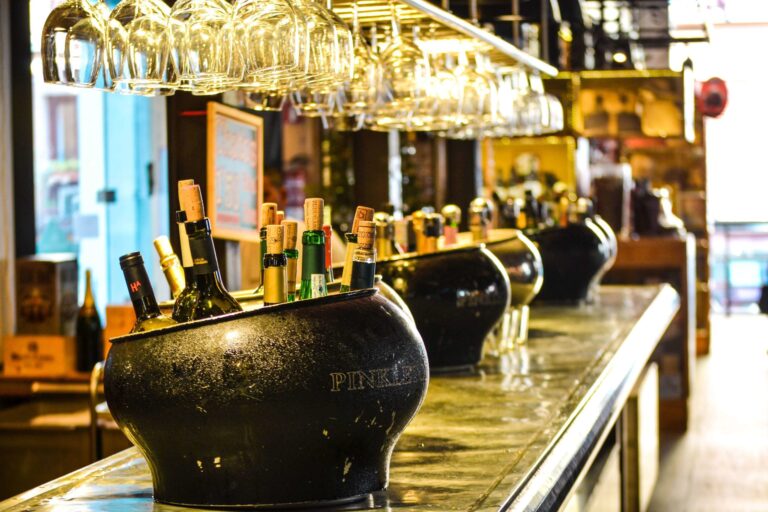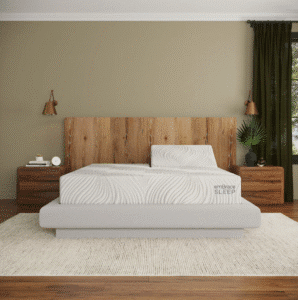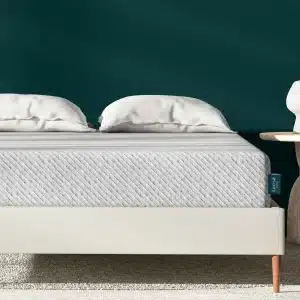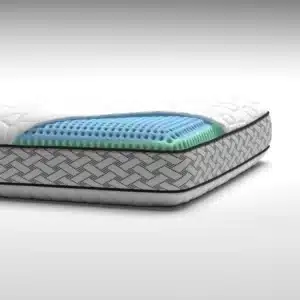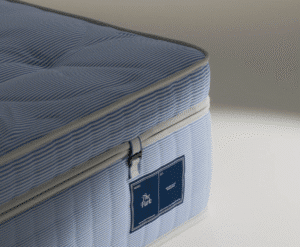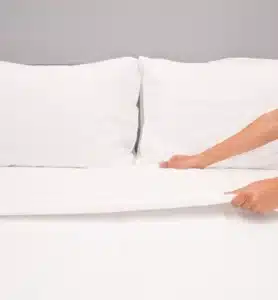How Does Alcohol Affect Your Sleep?
Many individuals believe that a drink before bed can promote restful slumber. It’s not uncommon to hear someone mention their nightly ritual of a ‘nightcap,’ a warm alcoholic beverage intended to calm the mind and ease the body into sleep. While many report a sense of drowsiness after consuming alcohol, the reality is that this seemingly harmless habit can significantly disrupt both the quality and quantity of your sleep. Understanding how alcohol affects your sleep is crucial to ensuring a more restorative night.
The Paradox of Alcohol and Sleep: A Closer Look
At first glance, alcohol appears to be a helpful sleep aid; it allows many to fall asleep rapidly. However, research suggests that this effect is short-lived and ultimately detrimental. Initially, alcohol promotes deep sleep, often referred to as slow-wave sleep. During this phase of sleep, delta brain waves dominate, playing a vital role in memory consolidation and overall cognitive function. Yet, as the night progresses, alcohol stimulates alpha brain activity, contrary to the restorative delta patterns that should prevail during sleep.
This interplay of delta and alpha activity leads to fragmented sleep and hinders the essential REM cycle—considered the most crucial phase of sleep for emotional regulation and recovery. Instead of experiencing the deep rejuvenation that comes from healthy REM sleep, many individuals wake up feeling groggy, disoriented, or outright fatigued. These effects highlight the essential truth: alcohol does not facilitate quality sleep.
Impact on Circadian Rhythm
Another critical aspect of how alcohol affects your sleep lies in its interference with your circadian rhythm—the internal clock regulating sleep-wake cycles. Alcohol consumption before bed can disrupt the balance of neurotransmitters and hormones responsible for signaling sleepiness. The body produces adenosine, a natural chemical that promotes sleep, in response to alcohol. However, this effect is fleeting; once adenosine levels drop, awakenings in the night become common. Many find themselves waking up in the early hours of the morning, battling fatigue when they should be resting peacefully.
The Role of REM Sleep in Sleep Quality
As previously mentioned, the relationship between alcohol and REM sleep significantly contributes to poor sleep quality. REM sleep is crucial for emotional resilience and memory processing. When alcohol interrupts this phase, individuals may experience cognitive deficits and mood instability the following day. The cumulative effects of frequent alcohol consumption can lead to chronic sleep disturbances, leaving people feeling trapped in a cycle of fatigue and irritability.
Alcohol, Sleep Disorders, and Breathing Difficulties
Compounding the negative effects on sleep, alcohol is also linked to an increased risk of sleep disorders, particularly conditions like sleep apnea and snoring. As a sedative, alcohol relaxes the muscles throughout the body, including those in the throat. This relaxation can worsen breathing issues during sleep, leading to interrupted rest and poorer sleep quality. If you already suffer from any sleep-related issues, consuming alcohol before bed can amplify these problems, creating a ticking time bomb for restless nights.
Frequent Bathroom Trips and Sleep Disruption
Moreover, alcohol has a diuretic effect, which can lead to increased trips to the bathroom during the night. When the body consumes alcohol, it often prompts a more urgent need to urinate. This disruption interrupts sleep cycles, further compounding feelings of fatigue when starting the day. Given that quality sleep relies heavily on uninterrupted periods of rest, every bathroom trip detracts from sleep efficiency.
Rethinking Bedtime Habits
In light of the various ways alcohol affects your sleep, it becomes clear that cutting back on nighttime drinking may be the key to achieving restorative rest. While many enjoy ending their day with a glass of wine or a cocktail, it’s essential to consider the trade-offs involved. If you find that you consistently wake up feeling tired or restless, you may want to reevaluate your drinking habits.
Timing is also critical; if you choose to drink, aim to finish at least two hours before bed. This window allows your body to metabolize the alcohol and transition into a more conducive state for sleep. In many cases, simply shifting your drinking schedule can lead to profoundly better sleep quality.
Conclusion
The link between alcohol and sleep quality is intricate and multifaceted. While a drink may initially seem like a comforting companion to help you fall asleep, the subsequent disturbances can lead to feelings of fatigue and irritability the following day. For those struggling with sleep issues, rethinking the presence of alcohol in your nightly routine is essential. By making conscious decisions about when, how much, and if you drink at all, you can pave the way for a more restful, rejuvenating sleep experience. Embrace a lifestyle that supports recovery and well-being—your sleep health will thank you.


